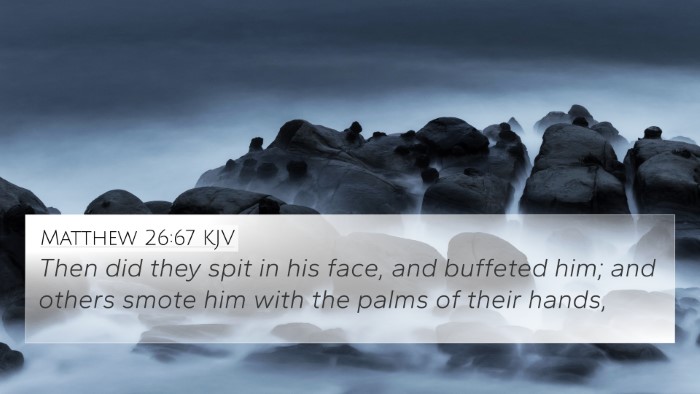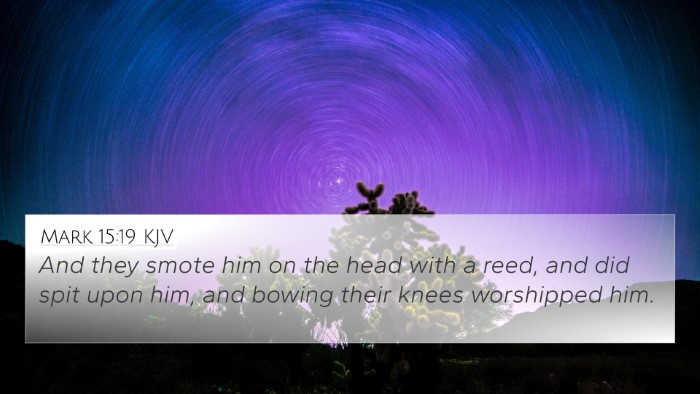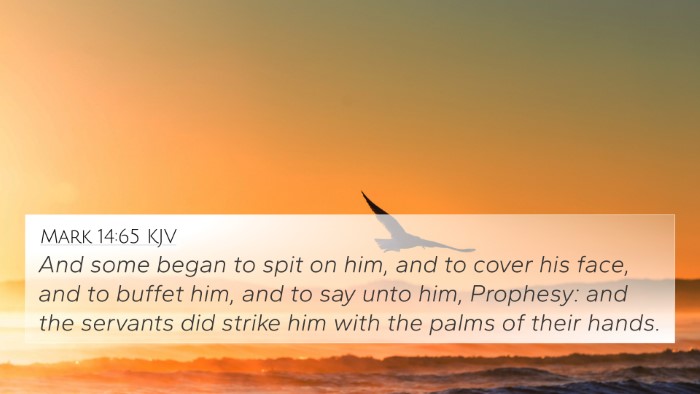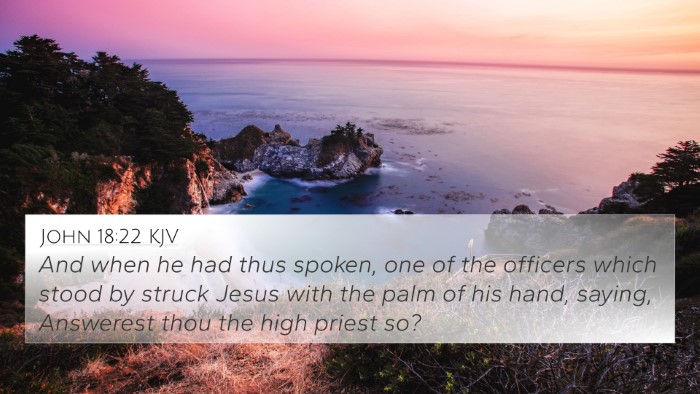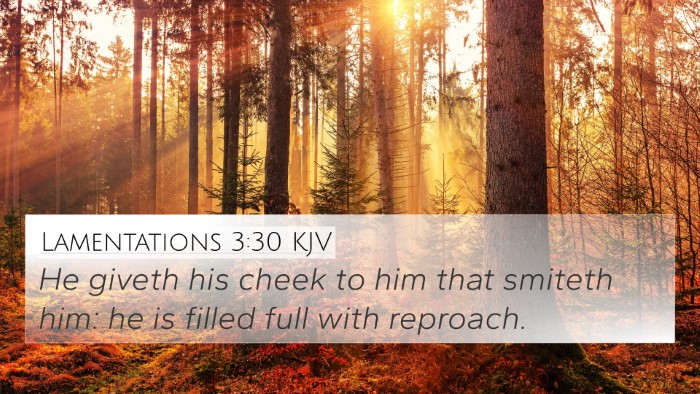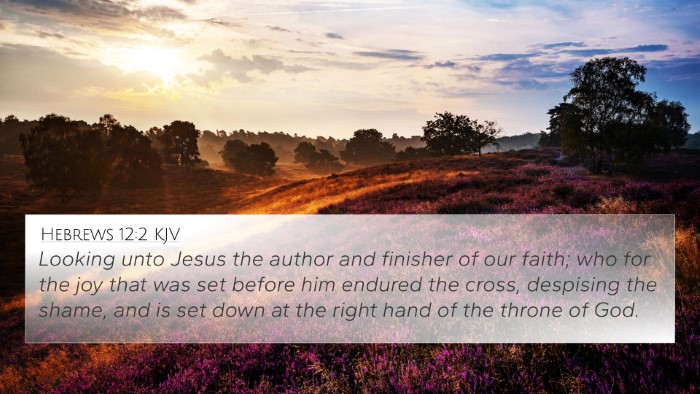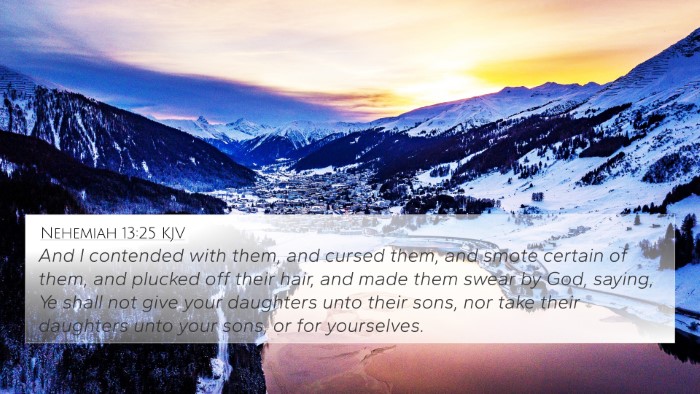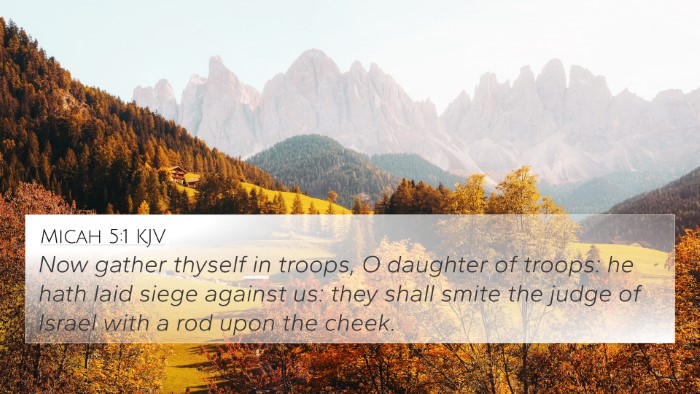Understanding Isaiah 50:6
Isaiah 50:6 (KJV) states:
"I gave my back to the smiters, and my cheeks to them that plucked off the hair: I hid not my face from shame and spitting."
This verse, rich in imagery and profound in meaning, necessitates a careful examination. It depicts the suffering servant, portraying both a physical and emotional ordeal endured willingly. Various public domain commentaries provide insights that can deepen our understanding.
Summary of Key Interpretations
Isaiah 50:6 speaks to the theme of suffering and humility, significant in both the Old Testament and its fulfillment in the New Testament. Here are the insights from renowned commentaries:
-
Matthew Henry:
Henry emphasizes the figure of the servant enduring mistreatment without retaliation. He connects this suffering to the greater narrative of God's redemptive plan, showcasing the servant's role as one who exemplifies patience and obedience in the face of adversity.
-
Albert Barnes:
Barnes highlights the symbolic nature of the actions described, suggesting they represent the broader spiritual affliction endured by the righteous. He interprets the spitting and shame as manifestations of the world's rejection of the Godly.
-
Adam Clarke:
Clarke elaborates on the symbolic significance of "giving the back to the smiters." He illustrates how this act signifies submission and suffering, linking it to the prophetic fulfillment found in Christ's own suffering during His passion.
Thematic Connections and Cross-References
Isaiah 50:6 resonates with numerous themes found throughout Scripture. Here are relevant Bible cross-references that highlight its interconnectedness:
- Matthew 26:67-68: "Then did they spit in his face, and buffeted him; and others smote him with the palms of their hands." - Reflects the fulfillment of Isaiah's prophecy in Christ.
- 1 Peter 2:23: "Who, when he was reviled, reviled not again; when he suffered, he threatened not; but committed himself to him that judgeth righteously." - Demonstrates the servant's attitude towards suffering.
- Luke 22:63-64: "And the men that held Jesus mocked him, and smote him." - Further portrayal of the humiliation faced by Christ.
- John 19:1: "Then Pilate therefore took Jesus, and scourged him." - Connects the physical abuse to the character of the servant foretold in Isaiah.
- Isaiah 53:3: "He is despised and rejected of men; a man of sorrows, and acquainted with grief." - Enriches the context of the servant's suffering.
- Matthew 5:39: "But I say unto you, That ye resist not evil: but whosoever shall smite thee on thy right cheek, turn to him the other also." - Links the principle of meekness and non-retaliation taught by Jesus.
- Isaiah 52:14: "As many were astonished at thee; his visage was so marred more than any man." - Explores the depth of physical suffering endured by the servant.
Exploring the Cross-Referencing Method
Understanding the connections between biblical texts enhances our comprehension of divine themes. Here are some tools for Bible cross-referencing:
- Bible Concordance: A valuable resource for finding words and verses throughout Scripture.
- Bible Cross-Reference Guide: Systems that help identify links and parallels across different verses and books.
- Comprehensive Study materials: Use of inter-Biblical dialogue to draw insights across salvific history.
Applying the Insights
As you study Isaiah 50:6 and its rich context, reflect on the following:
- What does the portrayal of the suffering servant say about the character of God?
- How do the themes of suffering and humility manifest in your life today?
- In what ways can you apply the principle of humility and peace in times of conflict?
Conclusion
Isaiah 50:6 serves as a profound reminder of the nature of the servant's sacrifice. The insights from the commentaries, alongside the biblical cross-references, enrich our understanding of this poignant moment in scripture. This verse not only connects the Old Testament prophetical legacy to the New Testament's fulfillment in Christ but also encourages us to reflect on how such themes influence our spiritual journey.



